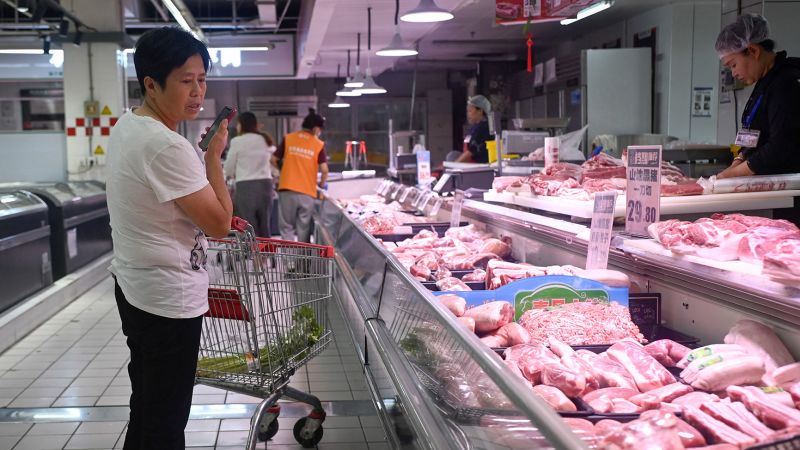In response to the European Union’s decision to increase tariffs on electric vehicles from China, Beijing has launched an investigation into the prices of pork products from the EU. This move has the potential to escalate tensions in one of the world’s largest trading relationships and has raised concerns among EU exporters about potential retaliation targeting their goods. The Ministry of Commerce in China announced that the investigation was initiated due to requests from local agricultural producers, who believe that prices of pork and pig by-products from the EU are artificially low. The investigation is expected to conclude within a year but may be extended if necessary.
The imposition of higher import tariffs on European pork products could have significant financial implications for European pork producers, especially if it affects demand in China, the world’s largest pork market. China is a major destination for EU pork exports, with Spain, the Netherlands, Denmark, and France being the top exporters to China. The EU exported over €2.5 billion worth of pork products to China last year, making it a crucial market for European pork producers. The EU is the second-largest pork producer globally, after China, highlighting the significance of this market for EU exporters.
Furthermore, Beijing has also launched an anti-dumping investigation into brandy imports from the EU, potentially targeting French cognac makers. There is speculation that China could expand its retaliatory measures to include European wine and luxury goods, further complicating the trade relationship between China and the EU. The European Commission has stated that it will closely monitor the investigation into pork products and intervene if necessary to ensure compliance with World Trade Organization rules. The EU remains confident that its agricultural subsidies are in line with WTO obligations, dismissing concerns raised by China.
The tensions between China and the EU have been exacerbated by the EU’s decision to impose additional tariffs on electric vehicles manufactured in China. These tariffs, ranging from 17.4% to 38.1%, will be imposed on top of the existing EU duty of 10%, potentially raising the overall rate to close to 50%. Beijing has expressed its opposition to these measures, which could impede its efforts to expand EV exports and may prompt Chinese carmakers to establish factories in Europe. The EU is also investigating China’s state support for wind turbine companies and solar panel suppliers, citing concerns about overcapacity and the impact of cheap exports on global markets.
In light of the ongoing trade tensions between China and the EU, analysts predict that Beijing may continue to target EU goods as a means of pressuring EU officials to reconsider their tariffs on Chinese products. The EU’s decision on whether to permanently adopt higher tariffs on electric cars imported from China is expected to be made by November, with provisional tariffs set to take effect on July 4. The outcome of these trade negotiations will have significant implications for both China and the EU, as they navigate a complex and evolving trade relationship. The efforts to resolve these trade disputes will likely shape the future of economic cooperation between these two major trading partners.




